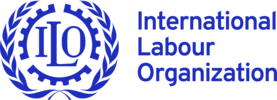The INDL (International Network on Digital Labor) project started as ENDL (the “E” standing for “European”) 5 years ago with an inaugural meeting in Paris. Since then, it has expanded internationally, and its members have organized larger conferences in Paris (2019), Toronto (2019), Milan (2020, online), and Edinburgh (2021, online). INDL's next conference will take place on November 3-5, 2022 in Athens and will be the first in-person meeting since the beginning of the Covid-19 pandemic. The network encourages the participation of researchers in all academic stages and from any part of the world.
Call for submissions
The concept of digital labor is central to the digital transformation of society. New jobs like online freelancing, gig-work, and remote crowdwork are made possible by digital intermediaries. Under the impetus of work from home, conventional jobs have changed to teleconferencing and have introduced algorithmic management.
Despite the pervasiveness of this phenomenon, the notion of digital labor remains elusive. Different disciplines and fields in the social and economic sciences, political theory, law, and philosophy have attempted to capture the attributes of labor in the digital age. These academic endeavors take place against the backdrop of the rise of platformization of work and the introduction of new activities that produce data and meanings for large sociotechnical systems. Thus, digital labor not only necessitates the transformation of the traditional concepts and methodologies we employ to study this essential human activity but also calls for a new understanding of labor relations to overcome the looming threats of unfair remuneration, job instability, harsh working conditions, lack of social grounding and, very often, self-alienation. This conference aims to map these new working environments by connecting different disciplines and fostering dialogue around the nature of digital work, as well as the possible futures that academic research may help bring about.
Place: National and Kapodistrian University of Athens, Greece
Dates: 3-5 November 2022
Please send your abstract (max. 300 words excluding title) to:contact[at]indl[dot]network
Deadline for submission: 15/07/22
Acceptance notification: 10/08/22
For registration: TBA
A non-exhaustive list of topics to be addressed by the conference:
1. New forms of digital labor
a. Atypical work and platforms
b. New types of contracts
c. Digital labor platforms and labor as a service
d. Platformization of remote work
e. Covid-19 and the great “work-from-home experiment”
2. The transformation of the working subject
a. Issues of personal identity (fragmentation, self-alienation)
b. Emergent classes (digital nomads, precariat, cybertariat etc.)
3. Digital labor and economic theory
a. Digital labor and value theory
b. Surveillance as value-producing mechanism
c. Cryptomining and new forms of capital accumulation
d. From commodification to ‘assetization’ of work
5. Digital labor and inequalities
6. Digital labor and the Global Souths
a. Coloniality
b. Global supply networks
c. Migrations
d. Labor arbitrage
e. Global workers’ competition
7. Digital labor and career development
a. What jobs are available to former platform workers?
b. Competency development
c. Formal and informal skills
d. Workforce polarization
e. Platform labor and unemployment/underemployment
8. Organizing digital workers
a. Negotiating the algorithm
b. Unions and platforms
c. Platform cooperativism
d. Global digital activism and platform labor
e. Labor regulations and digital markets
f. Patterns of professional regulation
g. Emerging working subjectivities
Scientific committee:
Paola Tubaro (CNRS), Antonio Casilli (Télécom Paris, Polytechnic Institute of Paris), Clément Le Ludec (Télécom Paris, Polytechnic Institute of Paris), Milagros Miceli (The DAIR Institute & Weizenbaum-Institut), Julian Posada (University of Toronto & Yale University), Uma Rani (International Labor Organization), Manolis Patiniotis (National and Kapodistrian University of Athens), Iraklis Vogiatzis (National and Kapodistrian University of Athens), Valia Aranitou (University of Crete), Christos Goulas (Labor Institute of the General Confederation of Greek Workers), Manos Spiridakis (University of the Peloponnese).



